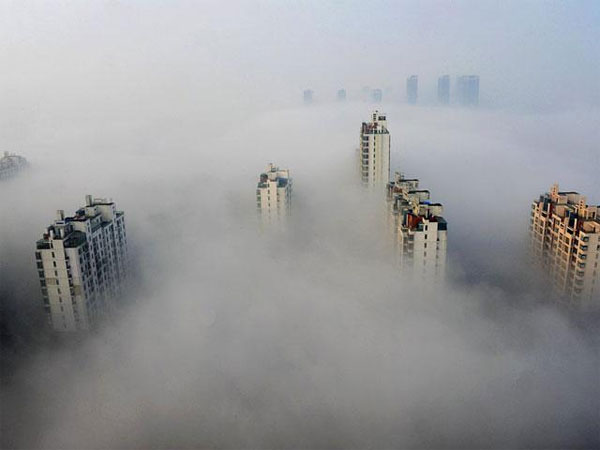Beijing improves air quality by 2030
The Chinese environmental agency recently said that concentrations of polluting particles in Beijing's air are expected to fall to a safe level according to international standards by 2030.
According to Pan Tao, head of Beijing Environmental Protection Research Institute, PM 2.5 particle density in the air is expected to drop to no more than 35 micrograms / m 3 by 2030. This is the level safe according to the standards of the World Health Organization (WHO).
"Improving air quality in the city will not be an easy task. That process takes time and effort , " China Daily quoted Pan as saying in an International Conference on Urban Environment. in Beijing yesterday.

Blind smoke is dense due to pollution in Suzhou City, Jiangsu Province.(Photo: Xinhua)
Beijing Environmental Protection Agency said the average PM 2.5 concentration measured in 2013 was 89.5 micrograms / m 3 . Beijing's rapid expansion, population boom and urbanization are the causes that hinder environmental improvement and control. High molecular dust density corresponds to low air quality, especially dangerous for the elderly and young children, people with heart and lung disease.
Air pollution is a topic of recent interest in China. Only three of the 74 cities monitored were air quality that met the standards in 2013.
In February, air pollution in the capital of Beijing was first classified as a yellow alarm group, the second highest level in the 4-step pollution warning system. Heavy air and dust pollution in many cities causes schools to cancel outdoor classrooms or even close their doors, vehicles must restrict travel.
Polluted emissions are exceeding the city's ability to handle, other environmental problems are likely to lead to dense dust in Beijing and many other cities.
Many companies, especially cement plants and coal-burning facilities, have been sanctioned for emissions exceeding permitted levels, lack of measures to reduce emissions or not to treat waste.
- Beijing must change its way of measuring pollution because of pressure
- Beijing issued a red alert for the second time because of air pollution
- Beijing for the first time warned about air pollution
- The truth about air quality indicators is that many of us are still mistaken
- Air pollution in China is still getting worse
- After 30 years, Beijing picked up snow again in April
- Use kite to measure the level of air pollution
- Satellite images reveal the disaster of Chinese air pollution
- Brain implants are useful for Parkinson's patients
- Beijing spent $ 16 billion to brighten the sky
- Beijing 'narrowly escaped death'
- AirVisual: An application that checks the air pollution level that anyone should install
 Is the magnetic North Pole shift dangerous to humanity?
Is the magnetic North Pole shift dangerous to humanity? Washington legalizes the recycling of human bodies into fertilizer
Washington legalizes the recycling of human bodies into fertilizer Lightning stone - the mysterious guest
Lightning stone - the mysterious guest Stunned by the mysterious sunset, strange appearance
Stunned by the mysterious sunset, strange appearance